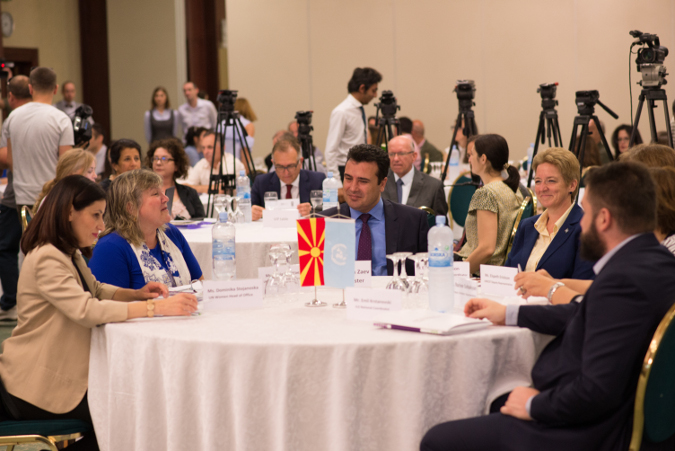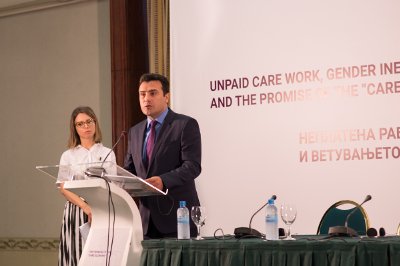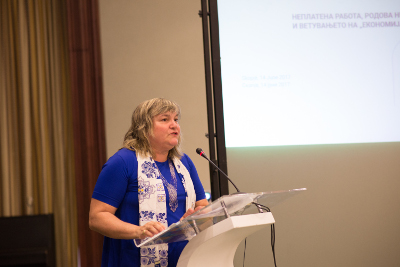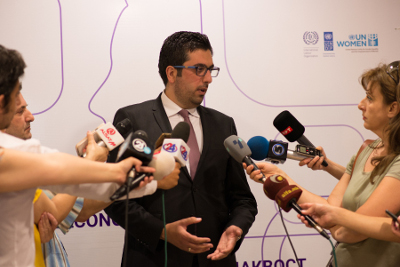Experts discuss how to reduce the burden of unpaid care work on women in FYR Macedonia
The first national conference on unpaid care work, gender inequality and the promise of the “care economy” took place in Skopje, the former Yugoslav Republic (FYR) of Macedonia from 14 to 15 June 2017.Date:

The purpose of the conference was to assess the burden of unpaid care work, which is predominantly shouldered by women across the world, and its implications on gender equality.

“Gender equality is a high priority on the new government’s agenda. We are aware that this is not only a women’s issue and that systemic solutions are needed to address this problem. We are dedicated to address it with due seriousness,” said Zoran Zaev, the Prime Minister of the former Yugoslav Republic of Macedonia, delivering the opening statement at the conference. Following the Prime Minister, Louisa Vinton, UN Resident Coordinator and UNDP Representative, emphasized that “public spending on care services should not be seen as a cost but as an investment.”

Maria Noel Vaeza, UN Women Programme Director, expressing her pleasure “to witness the changes this government is committed to do.” Ms. Vaeza stressed the importance of investing in women and said “If we don’t invest in 50 per cent of the population, we cannot expect economic growth. If women are not considered in the micro economy, the country is hindering its economic growth.”
“Care work is undertaken mostly by women within households as unpaid work and has been invisible to the mainstream economic analysis and economic policy making,” said Nilufer Cagatay, UN Women Advisor for Women’s Economic Empowerment in Europe and Central Asia, underlining the importance of recognizing unpaid care work. Prof. Ipek Ilkkaracan spoke about a research she led which found that in Turkey, investing in pre-school education and child care can result in the creation of hundreds of thousands of jobs. Taking into consideration the national context, Prof. Vanco Uzunov stressed the importance of developing social infrastructures such as early childhood care centres and elderly people care centres to reduce the unpaid care of women. Success stories from the Community Works Programme, supported by UNDP in the country, were also presented.

Emil Krstanovski, head of ILO in the country, spoke on the significance of the “care economy.” Marjan Petrovski, co-author of a UN Women-supported study that examines low female labour market participation in the former Yugoslav Republic of Macedonia, provided an overview about the findings. Mr. Petrovski noted that “stereotypes and gender norms have a strong impact. Women’s traditional gender roles within the household, and in the society in general, can be an important impediment to female participation in the labour market.” Mariko Ouchi, ILO Specialist, spoke about the gender wage gap in relation to the “care economy” and reiterated three important obstacles for women: low-paid jobs, regardless of gender; concentration of female workers in certain sectors, such as the textile industry, instead of across all job fields; and informal models of employment. Experts also discussed global best practices and next steps to take locally.
The conference brought together over 130 participants, including high-level government officials, regional and national UN representatives, CSOs, practitioners, central and local government representatives. Around 40 development practitioners received training on the basics of feminist economics and the “care economy.”
The conference was jointly organized by UN Women, UNDP and ILO.